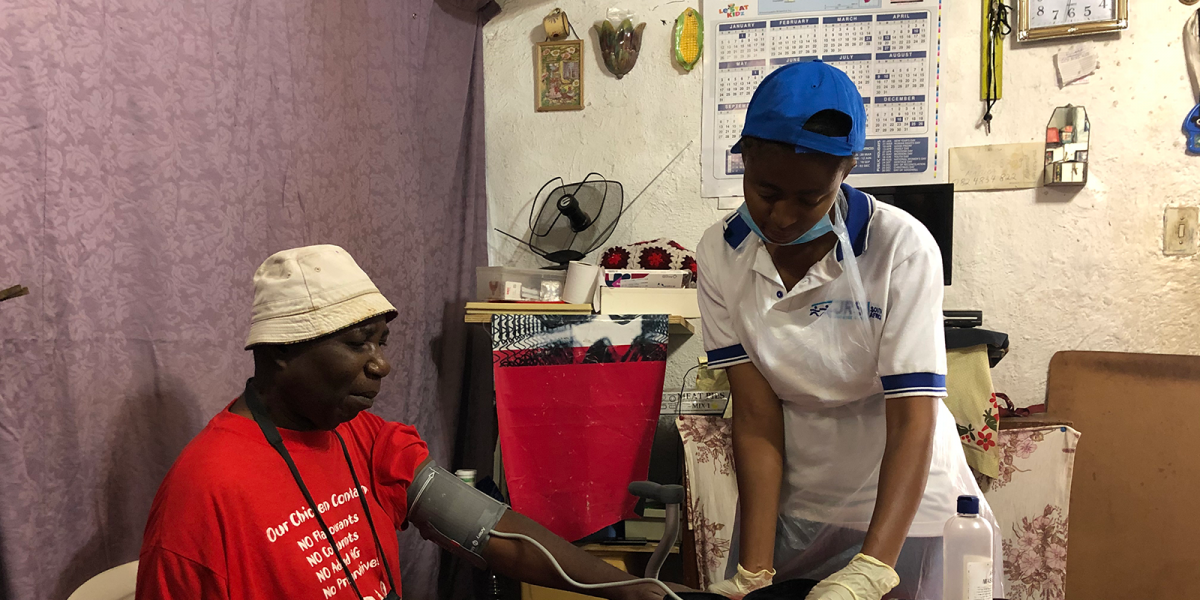JRS South Africa & PRM: Protecting Health in a Turbulent Year
08 April 2021

Every so often, a story arises from across a JRS program and shines a light at the perfect moment. This past year, as nearly all human beings on earth modified their routines and lives due to COVID-19, public health suddenly became the de facto topic of conversation.
For ailing refugees and migrants in Johannesburg and Pretoria, South Africa, in-home care was more critical than ever before.
As such, Jesuit Refugee Service/South Africa’s home care initiative — supported by the US Department of State’s Bureau of Population, Refugees, and Migration (PRM)— took center stage.
The nearly five-year-old program was featured in a two-part series by New Frame News, a non-for-profit news organization based in Johannesburg.
In the first part of the series, New Frame followed the “invaluable help” provided to refugees and other migrants who are ill and neglected by state health services.
Tertiary healthcare services are prohibitively expensive for many migrants living throughout the country. Services such as dialysis or cancer treatment can often only be accessed by migrants if they pay a certain fee in hospital.
In turn, JRS South Africa employees over 100 in-home healthcare workers to secure home visits and accompany nearly 1000 refugees and migrants across the two cities.
The second part of the series delves into the lives of the in-home care workers, many of which are former refugees themselves — often from the Democratic Republic of Congo (DRC).
Patrick Ilunga, 34, came to South Africa from DRC about 10 years ago. He qualified as a nurse in his home country, but “his qualification is not recognized in South and he’s been unable to find work. Instead, he has become a home-based caregiver for JRS.”
Though the series was captured in January 2021, South Africa had already moved towards its peak of COVID-19 infections in late 2020. Despite the spike in August, the government moved the country from a Level 3 to Level 2 alert, signaling the further relaxation of some social restrictions and a gradual reopening of businesses across the country.
JRS introduced a gradual reopening of offices and continued to maintain strict compliance with health and safety regulations in order to care for terminally and chronically ill patients.
Learn more about additional JRS partners around the world.



